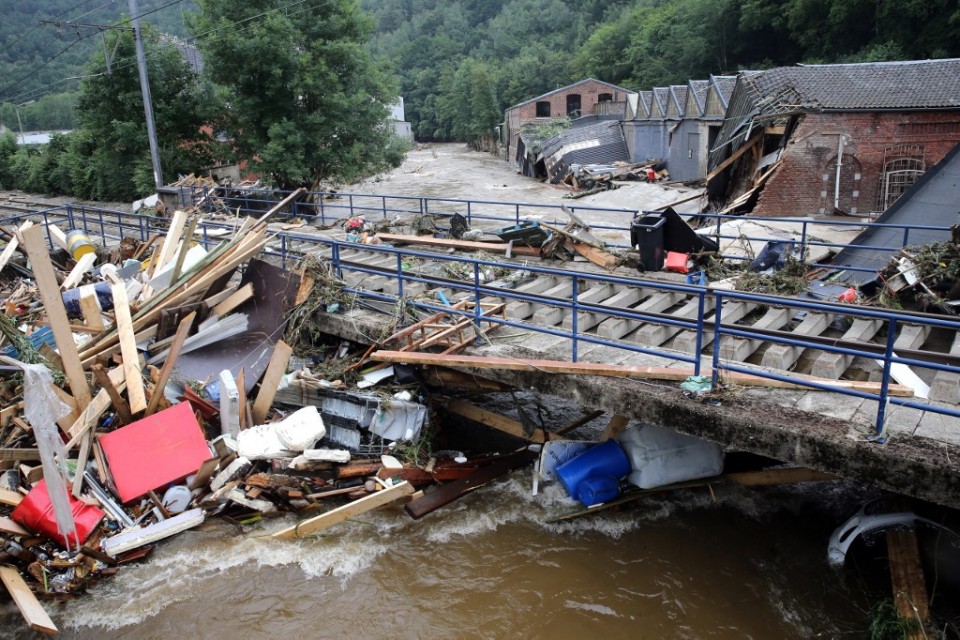
by Anne-Laure MONDESERT
TROOZ, Belgium It has been two weeks since the torrents of water trapped Nadia Neqrat on the first floor of a house in Belgium’s eastern Trooz district, and she still has nightmares.
Now — with the help of relatives, neighbours and volunteers — she is among the residents trying to rebuild their lives.
The devastation from the worst floods here in living memory, which left at least 41 dead in Belgium and 180 in neighbouring Germany, is still strewn all around.
Broken furniture is piled up, debris litters the streets and the local school has been badly hit.
“It was really horrible, I don’t wish anyone to go through this,” Neqrat, 39, tells AFP, as her sister-in-law helps her to clear up her house.
“I have nightmares, but I feel most sorry for the children who have been through this.”
Neqrat was at a neighbour’s house when the waters came — barely giving them enough time to grab some food and make it to the first floor.
They were then stranded there for around 48 hours waiting for someone to come and rescue them.
“But no one came. We had to make do. We felt abandoned,” she said.
‘We saw death’
Piles of tinned foods, pasta and drinks now stand in the nearby church where the pews used to be.
Volunteers hand out coffee and croissants on the church square to locals who sometimes cannot hold back their tears.
“We saw death up close,” says Jocelyne Chacon, 63.
She “lost everything” when the water inside her home rose to a height of 3.6 metres (12 feet).
Priscilla Breckpot, a nurse, confides that her “biggest trauma” was being separated from her children after she went to help her parents.
“My kids were screaming, my neighbours were trying to reassure them. My partner tried to go with a rescue team but the boat overturned,” she recounts.
Eventually the children were reached after 24 hours.
During her anxious wait, Breckpot says she saw a dead body being carried along by the water.
The local authorities are offering psychological counselling to residents.
But Breckpot insists she is too busy, what with the insurance claims to file and clean-up to finish.
‘Generosity’
“We are in an absolute disaster which will last for years. At the same time we are faced with absolute generosity”, says local priest Pierre Hannosset.
A woman, who has travelled two hours to get there, arrives with a basket full of provisions and leaves it at the church.
A group from the Flemish-speaking region of Flanders goes door to door to offer people bread and water.
Annick Troch a local municipal worker gave up a week of her summer holiday to come and help the recovery efforts.
“Psychologically it was tough on the first day, but then we see the smiles of people seeing us arrive,” she says.
Mayor Fabien Beltran, whose office was destroyed, welcomes any assistance the area can get.
“Among my staff, people are starting to crack. The task is too enormous,” he says.
“We need help from the outside.”
To assist the victims, a medical bus parks up every afternoon to help locals requiring medicines or nursing injuries.
“People come to treat their wounds, to renew a prescription, and also to talk,” explains Henri Bournameau, a retired general practitioner manning the temporary facility.
“But I believe that the big psychological problems will come later.”
© Agence France-Presse








